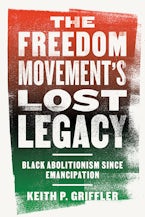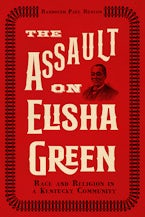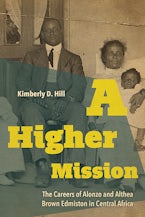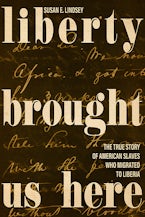In {#289-128}, Randall Horton turns his gift of musical language toward the contemplative, and we find a world larger than our imaginations. It's hyperreal; it's magical; it's filled with solitude, communion, and truth, but, even more surprising, it's a world behind bars that's all around us. We've just ignored it, but the idea of 'escape or release' is a 'fairytale,' and Horton has 'captured [it] with stanzas' for us. Beyond that magic, {#289-128} also teaches us about relationships during a time when we're paying more attention to both how we talk to one another and, as a result, how we love.
~A. Van Jordan, author of The Cineaste
Randall Horton's fourth book moves brilliantly from the confines of a prison cell to the expanse of New York City. As 'state poet #289-128,' Horton vividly evokes the dehumanizing experience of prison and the system that enables it. Racial awareness is implicit: 'skin color / is a race that never stops running,' and prison remains a presence even when the poet is free to ride the subway and chronicle a vibrant array of urban lives. 'Poems need to bite,' he says, and these poems do. But 'ruin... is evermore tied to the beautiful,' and {#289-128} is a beautiful book.
~Martha Collins is a poet, translator, and editor. She has published nine books of poetry, including Because What Else Could I Do
How easy it is for me to salute inmate #289-128. Perhaps I'm in the visitor's chair imploring to our protagonist why we must endure it all—why the darkness, the case, the 'story of survival no one survives' might be worth it all in the end. How we got here, we kind of know how this happens. But what we must undertake is a gruesome, soul-snatching, blues collecting, head-to-toe humanity stripping kind of testifying. How we'll end up, we kind of know—but what's for sure is that Randall Horton is my favorite poet. And his words are my favorite reminder. And this secular preaching is the kind of gospel that makes Etheridge and the underworld gods proud.
~Derrick Harriell, poet and assistant professor in English and Afro American Studies at the University of Mississippi. He is the author of COTTON and ROPES
There is something about trauma that poetry alone can speak to: It can distill pain and wrench something beautiful from it. Horton's stunning work does just this, laying bare the dehumanizing horrors of prison and transforming them into gorgeous art.
~Baz Dreisinger, author of Incarceration Nations: A Journey to Justice in Prisons Around the World
In {#289-128}, Randall Horton, who was himself 'property of the state,' writes about 'the slow fatality of imprisonment' with searing insight. These are his trials, his Passion – a word whose root means suffering. This is a must-read voice for our time 'screaming in a dark ocean'; a voice for all times that reminds us how much is lost when we confine a person's humanity to a number. Calling upon the legacy of Ralph Ellison and Etheridge Knight, walking with ghosts in Harlem, and excoriating the limitations of rhetoric, Horton shows us 'how time is malice is death' for generations of invisible men.
~Lucinda Roy, author of Fabric: Poems and the forthcoming novel series The Dreambird Chronicles
In his powerfully evocative collection, Randall Horton immerses us in the journey of {#289-128} with lush yet stark poems that cast a spell to break all spells. To question the story of incarceration is to question the ways in which we too are held captive within coded spaces and social contracts, 'trapped / in a maze of identity & boundaries.' Horton's undaunted lyricism shatters this hall of mirrors with a voice transcendent, challenging us to uncover a deeper empathy within and without bounds, where 'the voiceless are alive, too.'
~Monica Ong, author of Silent Anatomies
In [#289-128] Randall Horton serves a cicerone to life behind the walls, guiding us with clear eyes through the cell and the yard, through the mess hall and tiers. He also proves himself a sage, revealing knowing truths about the humans we feed into a carnivorous American carceral system: their doubts and hopes, their wounds, their searches for healing. And if that wasn't enough, his collection is also a moving personal reckoning. Horton is indeed a necessary voice in these troubled times.
~Mitchell Jackson, author of the Survival Math
The title of Randall Horton's book—{#289-128}—is what the author was branded to wear while serving time in prison. This book is not a literati 'been there' selfie; not a cred advertisement. It is not even simply accurate, authentic witness. Take that with the fact that this work is masterfully accomplished and skilled writing, it becomes clear that {#289-128} is the real deal. This is the work of having to, of owning, of living a good life of what's left; a decent life, a wiser life. This is poetry.
~Ed Roberson, author of To See the Earth Before the End of the World
Randall Horton's work is urgent and sensitive. With attention to detail and generosity, he forces us to confront the everyday brutality of the criminal punishment bureaucracy. We must open our hearts and minds to the images he offers us, and then we must dismantle the system.
~Alec Karakatsanis, founder of Civil Rights Corps and author of Usual Cruelty: The Complicity of Lawyers in the Criminal Injustice System
Randall Horton's poetry in {#289-128} is the liberation narrative, the blue note, and classic soul. They are the memory and longing existing inside the "changing same." These poems are brutal splendor that evoke isolation and freedom simultaneously. A literary classic.
~Kelly Norman Ellis, author of Tougaloo Blues and Offerings of Desire
If I still talked exactly like back when I was a youngin, and you asked me about Horton's {#289-128}, I'd tell you 'this joint jy tough' – parlance that means this book here has all of it: the grit, the grime, the hope. Reading this book is as close to the transformative experience of prison you'll get without doing a bid. The note that sounds throughout is an empirical one - this malus thing ain't justice, but it also ain't stopping this point from singing about the cost (and weight) of freedom.
~Reginald Dwayne Betts, author of Felon
Randall Horton's {#289-128} is a powerful, bristling, innovative serial poem from the carceral state, the beating heart of a brilliant poet's life inside. This is life as a number, a routine, but with razor perception, elegant stride, and heightened observation of the human. 'i am not post or post-racial or post-human, i'm / color-constructed I am melanin, & perhaps we have lost our minds.' A life "hung out to dry, while hanging in the streets for back bodies'", Horton writes of torture, writs, motions denied, carnage, and family turning back collect calls. And where 'rehabilitation is love letters to a ghost.' This is one of the most essential books of poetry of this time, right now. Of 'screaming in a dark ocean,' of waiting for release that does finally come. But poetry needs to 'bite/spit venom, and rebel rouse' radically, in or out. This book is a goad to keep by your side as the world awakens to understand its penal tragedies and advocates a visionary change. Kudos!
~Anne Waldman, author of Trickster Feminism, cofounder with Allen Ginsberg of The Jack Kerouac School, Chancellor Emeritus of The Academy of American Poets
Reduced to numbers and stripped of identity, Randall Horton sketches a face of incarceration that, as the system wills it, appears interchangeable and dismissable to the public eye. But between the pages of {#289-128}, Horton's collectivized voice becomes a form of power, a force impossible to ignore. Still—'the [I] in me no longer lives / it vanished i confess the collective (we) / is no better'—Horton's true gift lies in the refusal of neat packaging, choosing instead to question both the possibility and failures of language, routinely turning poetry on its axis to examine: can craft appropriately hold the sheer violence of incarceration? Moving between haunting lyric and the make-it-plain, Horton's book is at once a landmine of nuance, and a strong medicine against our country's most oppressive and horrific systems. Put simply: it is a must-read.
~Caits Meissner, PEN America Prison and Justice Writing Program Director and author of Let It Die Hungry
In this poetic memoir about incarceration, Horton takes you on a journey. This journey is so far from what you think you know that the art mirrors an experience. The American prison industrial complex is not a destination; it is a wilderness, an abyss. Take ride with #289-128 into what is remembered, written on the body, and paid for in forevers. {#289-128} PROPERTY OF THE STATE is an important American story, one that illustrates the shadow side of coin. It is in these shadows that American dreams are decimated. In these pages Horton reminds us 'freedom ain't nothing not even a word.' There are no illusions in this book.
~DaMaris Hill, 2020 NAACP Image Award Nominee for Outstanding Literary Work of Poetry and author of A Bound Woman is a Dangerous Thing
Take a thing or two that you're not and that you want not to be. Add salt in a wound and make that thing or two the only things the world sees. Make that not-what-you-are your mirror. Play it out over a century or three and you'll understand something about this tradition. It's not the classical route to wisdom (or is it?). Randall Horton's poems testify to 'a box reluctant / not to be a box,' testify that reckoning with the terms of imprisonment is the key to whatever can be unlocked. He focuses on what happens to life, to time, to flesh and spirit, when 'the [I] in me no longer lives' and 'the collective (we) / is no better.' These poems refuse to testify to the façade. Instead, scripted 'not with breath / but breath's imagination,' through them we can learn that whatever lives can be made here will entail all 'the bad & terrible beauty just beneath the living.'
~Ed Pavlic
The poems are gritty, precise, staccato slaps, evocative and rich.Horton's poetry is the prism and guide for we what need now, so tomorrow can look like something else. Ideally something better and more empathic. Will his poetry change your life? Of course it will.
~This Book Will Change Your Life
A book that is deeply empathy-inducing through stylish poems that are effective, heartbreaking, and haunting.
~Vol. 1 Brooklyn
A unique and inherently fascinating body of workA collection of poetry that will linger in the mind and memory long after the book itself has been finished and set back upon the shelf.
~Midwest Book Review
Every poem points toward that future (impossible as much as possible) and away from the present where 'skin color / is a race that never stops running.' In this collection of poems, Horton neither lags behind nor pretends to be ahead of the game. He stays abreast, zigzags, ducks, and scampers alongside, filing reports from a margin, a liminal strip irreducible to an outside (curious tourist) or an inside (embedded correspondent).
~Chicago Review











